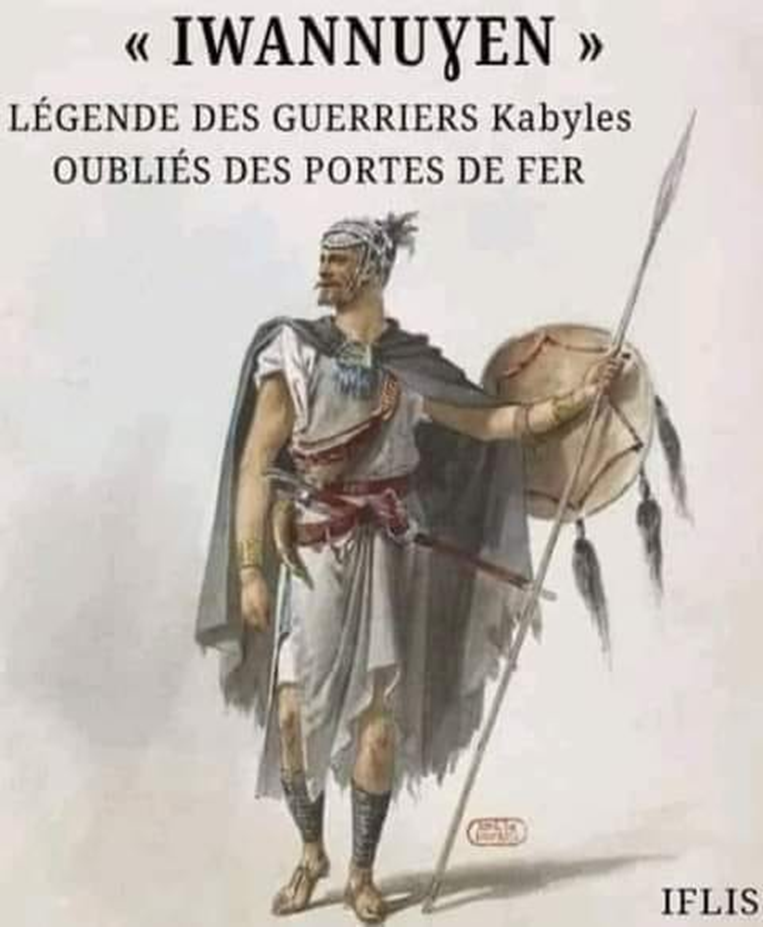“IWANNUƔEN”: Legend of the Forgotten Warriors of the Iron Gates
In the Kabylie of the bibans, there once lived a people of brave and haughty warriors that historical sources retain as IWANNOUGHEN (IWANNUƔEN). As good and noble Kabyle, they give themselves this name which is literally translated as The "combatants".
They were a pagan people. This is, according to Mouloud Gaïd in the History of Bejaia and its Region (1977), one of the reasons for their deliberate omission. Yet their story is more than fascinating to know and tell. A people who believed more in the destiny of a man than in the destiny of a people, according to Gaïd.
This fierce people of fighters lived in the mountains that were once called TIGGURA N WUZZAL (iron gates), translated into Arabic by the French orientalists: the Biban (gates).
They were known as almond growers and as beekeepers. Ibn Khaldoun, in "the history of the Berbers", also spoke of the famous "HONEY of WANNOUGHA" which was sold in Bône and Vgayet. He also referred to this region being classified as rebel, refusing taxes from local Sultans.
History will remember that it was a fearsome people that we feared. The Kabyle saying of “Amokrane Awannoughe, The peace pact is broken” (Muqran Awannuɣ, Tarbuyt n Slam tluɣ) still hides a lot from us about this formidable warrior chief.
Another Kabyle saying remembers them as chauvinists and troublemakers. It is sometimes said when addressing a rambunctious child: "Awannuɣ bu Caquṛ, anida yedda d laɛṛuṛ" (wannoughe with his axe, where there are some troubles).
It is said of them that they considered the jackal to have a playful and noble spirit. They also wore jackal and fox tails around their waists as a tribute to this wise animal. When they met him early in the morning, this was seen as an auspicious sign! Also, their favorite musical instrument was the two-flute ivory bagpipe.
Until recently, we saw a group of men dressed in the skins of wild animals, and who came to our villages with bagpipes and pagan dances and acrobatics. They girded a fox's tail and spoke an ancient Kabyle. They came in the month of May, as if they wanted to remind us of a heavy historical detail. If a woman wants her newborn baby to survive, she goes out and dances with them. They were called "Ibuǧlimen n Wannuɣa", or Boudjelima.
The IWANNUƔEN disappeared with the coming of the Hammadite ancestors of the AT Abbas. We do not know if they were pacified (reconverted to Islam), chased away, or massacred. What is certain is that the territory known as TAGELDA N AT ƐEBBAS (KINGDOM OF THE AT ABBAS) was once that of the IWANNUƔEN.
Often, the history of a land and its people is largely concentrated on one particular period and not another. It is certainly not an innocuous practice to find a summary chapter on the ancient Saldae and ten chapters on the Muslim vgayet. So obvious to the point that when a scholarship is given to a history student specializing in the ancient file of Algeria (who, moreover, has learned neither Latin nor Greek nor Punic, too expensive say to themselves- they) one grants ten to a promotion of students in history which covers the Islamic period of this ground!
http://www.amazighworld.org/history/index_show.php?id=642936


